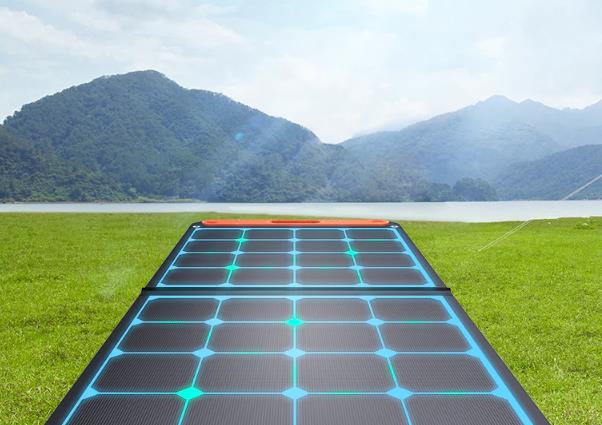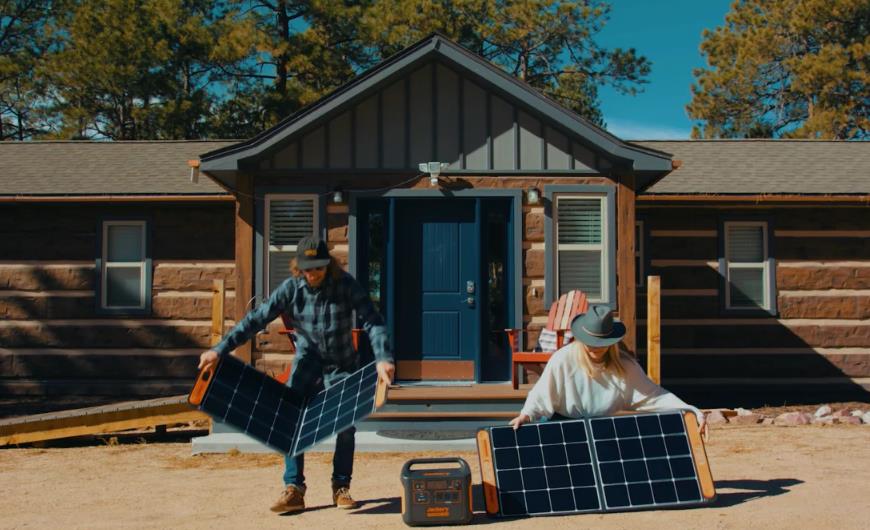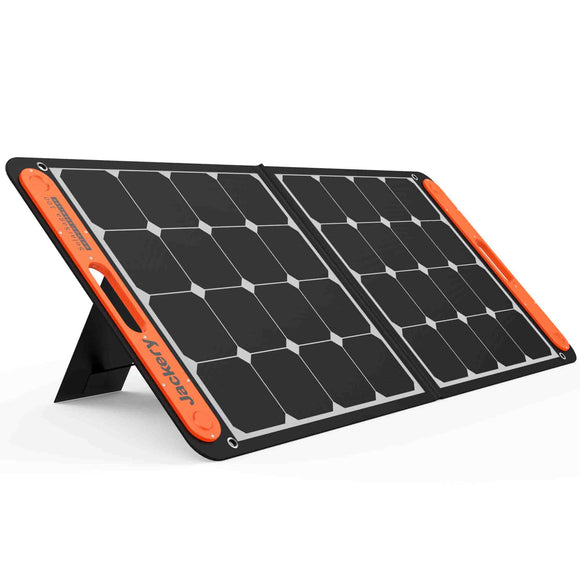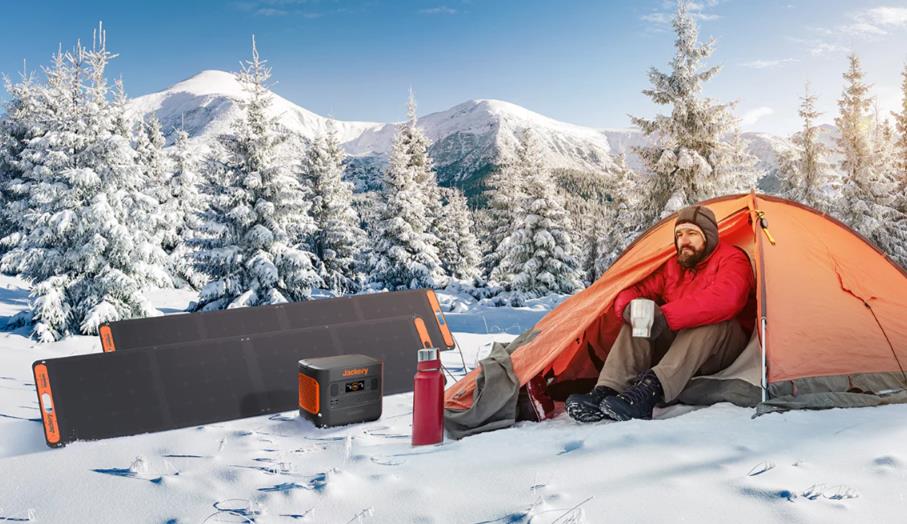Introduction
Modern solar panel technology enables businesses and
homeowners alike to tap into a cheap, reliable energy source. However, it's
essential to understand the factors that contribute to the lifespan of solar
panels. From types used in homes and commercial settings, understanding what
can be done before and after installation is key for extending their life - not
only for maximizing economic benefits but also for lessening environmental
impact. In this blog post, we discuss all you need to know about the lifespan
of solar panels, including different types available on the market today,
factors influencing how long they last, and tips and tricks for keeping them
running at optimal levels for many years ahead.
Solar panels have grown in popularity because they are a sustainable and
renewable energy source. They work by converting the sun's energy into
electricity, which reduces our dependence on non-renewable resources and helps
to lower carbon emissions. Nonetheless, it's important to recognize that solar
panels do not last forever, and some factors can affect their lifespan. Knowing
how to extend the lifespan of solar panels is crucial for making them more
efficient and cost-effective.
Explaining the Solar Panel Lifespan
Solar panels have a functional and productive lifespan,
usually 25 to 30 years, with some premium panels lasting up to 40 years. It's
essential to differentiate a panel's lifespan from its warranty period, which
ranges from 10 to 25 years.
To determine the return on investment for solar energy
systems, it's important to know the lifespan of solar panels. This information
can help homeowners and businesses prepare for maintenance, replacements, and
upgrades, as it indicates how long the panels can reliably generate
electricity.
Factors Affecting Solar Panel Lifespan
Various factors, including the quality of materials and
manufacturing, can influence the lifespan of solar panels. Therefore, it is
crucial to consider durability, lifespan, initial cost, and efficiency when
investing in solar panels.
To make informed decisions and get the best possible return
on investment, knowing what factors can impact how long solar panels will last
is important. This article will cover the different aspects that affect solar
panel lifespan, including the quality of materials and manufacturing and
environmental factors like temperature, humidity, and weather conditions.
Quality of Materials and Manufacturing

The quality of materials used in building solar panels
significantly impacts their lifespan. Solar panels with superior materials last
longer and are less likely to degrade. Manufacturers prioritizing quality
invest in better materials that provide greater durability and reliability.
Choosing the right solar cell technology is important as
different types, such as monocrystalline, polycrystalline, and thin-film, have
different lifespans. Monocrystalline solar panels are more durable and
efficient, making them a better choice for longevity than other solar panels.
In addition, the manufacturing process heavily influences
the quality of solar panels. Companies that implement rigorous quality control
procedures and utilize sophisticated production methods manufacture panels that
can withstand environmental pressures better and have a greater lifespan.
Environmental Factors
Solar panels can be affected by different environmental
factors that can affect how long they last. Let's look at some of the important
elements that can impact how well solar panels work:
1. Temperature
The efficiency and lifespan of solar panels are affected by
high temperatures. Solar cells can degrade more quickly when exposed to too
much heat. Although solar panels naturally produce heat during operation, too
much heat, particularly in hot regions, can lower their efficiency and
longevity. Nevertheless, modern solar panels have advanced heat dissipation
methods and better thermal coefficients to combat temperature-related problems.
2. Humidity
If solar panels are not sealed properly to prevent moisture
from getting in, high humidity levels can negatively impact their performance.
When there's too much humidity, condensation can form and harm the internal
parts of the solar panel. However, high-quality solar panels are tested
thoroughly and manufactured to industry standards to ensure they can resist
moisture and endure in humid conditions.
3. Weather Conditions
Although solar panels are designed to withstand different
weather conditions, such as rain, snow, hail, and strong winds, they can be
impacted by severe weather events. For example, hailstorms can cause physical
damage to the surface of the panels, affecting their performance. Strong winds
can also stress panel mounts and impact their structural integrity. Proper
installation and regular maintenance are important to minimize these risks.
Maintenance and Care
Regular maintenance and care are crucial in maximizing the
lifespan of solar panels. Here are some recommended practices.

1. Cleaning
To make sure your solar panels are working their best, it's
important to clean them periodically. Debris, like dust, dirt, leaves, and bird
droppings, can build up and make the panels less efficient. Following the
manufacturer's instructions when cleaning them is important so you don't
scratch or harm the panels.
2. Professional Inspection
Regular inspections by a professional solar panel technician
can help detect any early issues or potential problems. The technician can
evaluate the condition of the panels, wiring, and mounting systems, ensuring
their proper function.
3. Shading
To maximize the output of solar panels, it is crucial to
reduce any shading caused by obstructions like trees, buildings, or nearby
structures.
Extending the Lifespan of Solar Panels
Although solar panels have a limited lifespan, you can
prolong their durability through various methods.
1. Regular Cleaning and Maintenance:
To keep your solar panels working well and lasting longer,
cleaning them regularly is important. Dust, dirt, bird droppings, and other
debris can build up on the panels, making them less efficient at generating
electricity. You can use a soft brush or sponge with mild detergent and water
to clean the panels gently. Be careful not to use anything abrasive or harsh
that could damage them. Also, check the panels for any damage, like cracks or
loose parts, and get them fixed immediately.
2. Protecting from Harsh Weather Conditions:
While solar panels are durable, extreme weather can still
damage them. To protect them, guard against hail, heavy snow, strong winds, and
heat. You can install covers or guards for hail protection, use a soft brush or
snow rake to remove snow from panels, and ensure they're securely fastened in
windy areas.
3. Monitoring Energy Production and System Performance:
To prevent damage and identify issues early on, monitoring
your solar panel system's energy production and performance regularly is
recommended. You can use the monitoring system provided by your installer to
keep track of the energy output of your solar panels. If you observe any
unusual behavior, like system faults or a significant reduction in energy
production, contact a professional solar technician to evaluate the problem and
perform repairs if needed.
4. Professional Inspections and Maintenance:
Although you can do basic maintenance tasks yourself, it's
advisable to have a professional check and maintain your solar panel system
periodically. The technician can carefully examine all components, including
panels, wiring, and inverters, to ensure they're working correctly.
Additionally, an expert can conduct advanced cleaning methods, like using deionized
water to get rid of mineral deposits or performing electrical tests to verify
the system's integrity.
5. Maintaining a Suitable Environment:
To help your solar panels last longer:
- Ensure the area around them is well-maintained.
- Trim any tree branches or plants that could create shade
and decrease efficiency.
- Keep the space clean and clear of debris or anything that could block the panels or cause harm.
To get the most out of your solar panels and make the most
of your investment in renewable energy, follow these tips and take a proactive
approach to maintaining them. Doing so will help to maximize their efficiency
and extend their lifespan.
Overview of Jackery Solarsaga 100 and 200W Solar Panels
Jackery offers reliable and high-quality solar panels that
are suitable for a variety of applications.

1. Jackery Solarsaga 100W Solar Panel
The Jackery Solarsaga 100W Solar Panel is perfect for camping, outdoor activities, or off-grid power needs
because of its compact, lightweight, and portable design. It is made with
efficient solar cells and a strong construction that can endure harsh
environments.
Benefits of Jackery Solarsaga 100W Solar Panel
The Jackery SolarSaga 100W Solar Panel allows you to convert
solar energy into electricity efficiently. With a solar conversion rate of
24.3%, you can take full advantage of the sun's power. If you enjoy camping and
outdoor activities, you'll love the lightweight Jackery SolarSaga 100W Solar
Panel, which weighs only 10.33 lbs. It will only add the necessary weight to
your luggage. To ensure its longevity, we've protected it with a durable ETFE
laminate casing that grants an IP65 waterproof rating. This will ensure a
longer lifespan than its counterparts. Whether it's for an adventure or a power
outage, you can trust Jackery SolarSaga to perform flawlessly using the natural
energy source from the sun.
Jackery SolarSaga 200W Solar Panel
The Jackery SolarSaga 100W Solar Panel is great for bigger
energy needs and has the same durability and portability as the 100-watt panel.
It can charge larger devices or multiple appliances at the same time. Both
panels can be used with Jackery's power stations, providing a full solar energy
solution.
Benefits of Jackery SolarSaga 200W Solar Panel
The Jackery SolarSaga 200W Solar Panel is a great way to
start going green quickly, thanks to its high solar conversion efficiency of up
to 24.3%. This powerful device is also guaranteed a long lifespan and comes in
an innovative ETFE-laminated case. Using the recommended angle for optimum
absorption of sunlight, you can ensure that this solar panel is the most
reliable power source for you. Additionally, it is portable and foldable,
making it easy to use for outdoor travel and home backup. You can easily create
a portable charging system for any device with your preferred Jackery power
station, regardless of location. This system is suitable for various purposes,
such as outdoor activities, backyard gatherings, sports events, and even urban
settings. The Jackery SolarSaga 200W Solar Panel is the perfect solution for
setting up a reliable solar-powered system.
Recommending Jackery Solar Panels
Jackery provides the
Jackery SolarSaga 100W Solar Panel and Jackery SolarSaga 100W Solar Panel.
They're made to provide clean energy to power your devices when you're
outdoors. The panels are lightweight, flexible, and strong, which makes them
perfect for adventurers and outdoor enthusiasts. These solar panels are easy to
maintain with regular cleaning and can provide the specified power for many
years. If you need to charge smaller devices like smartphones, tablets, or
portable speakers, the 100-watt model is a great choice. However, if you need
to charge larger devices like laptops or small appliances, choose the 200-watt
model. Both models can work with Jackery power stations, making it easy to set
up and use them quickly. The Jackery solar panels are a great choice for anyone
looking for portable, durable, high-performance solar panels. They provide a
dependable source of clean energy for all your outdoor activities.

The Jackery solar panels are known for being reliable and
durable, and customers appreciate how efficient and easy they are to use. They
are a popular option for portable and off-grid solar power solutions, and
satisfied users have given positive feedback and performance reviews that prove
their effectiveness and longevity.
To learn more about Jackery SolarSaga 100W Solar Panel and
Jackery SolarSaga 200W Solar Panel, you can visit their official website
at for the 100 or 200-watt solar panels.
Conclusion
To make a confident investment in solar energy solutions,
it's important to understand the lifespan of solar panels and factors such as
quality, environmental impact, and maintenance. Products with proven
reliability, such as the Jackery lineup of solar panels, can be beneficial to
consider. Investing in Jackery's affordable yet powerful solar product lineup
will guarantee sustainable lifetime electricity. This assurance is further reinforced
by following proper maintenance practices. Those who are environmentally
conscious and forward-thinking can make confident decisions with this
assurance, ensuring long-term performance and return on investment.


